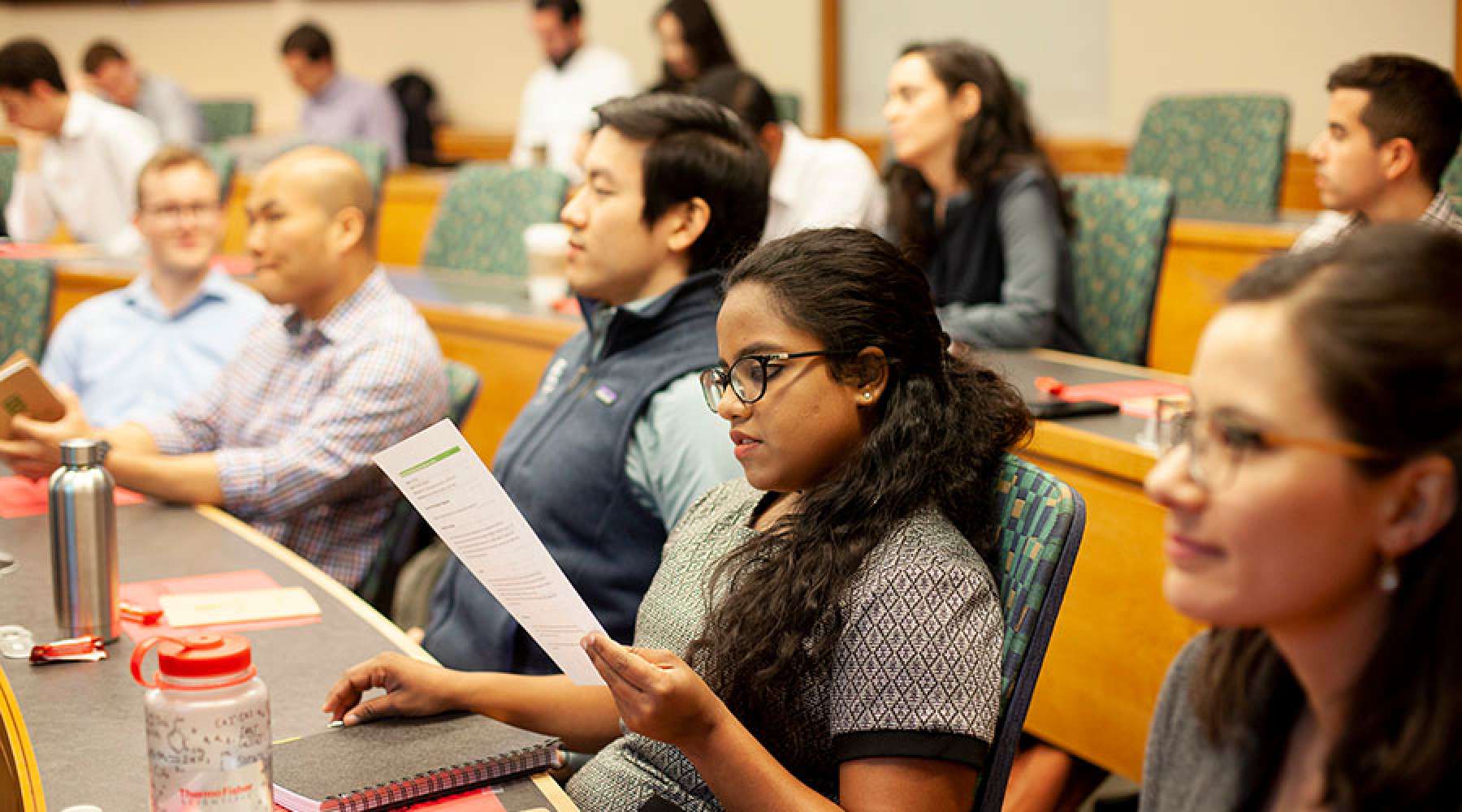
In the second annual MBA Summit Panel hosted by the Michigan Ross School of Business, Executive Director of Admissions Luke Anthony Peña and fellow admissions directors from Michigan Ross and Berkley Haas discuss the MBA admissions process and provide advice to prospective MBA applicants. Moderated by John Byrne, editor-in-chief of Poets & Quants, the rich one-hour discussion dove into topics including the GMAT vs. the GRE, how to stand out as an applicant, and the ROI of an MBA.
When asked about evaluating the applications of those looking to attend an MBA program in order to successfully switch careers, Peña said:
“We look for awareness. To us awareness is a balance of ambition and reality. So we want candidates to be ambitious, we want candidates not to come to the MBA just to do the exact same thing that they were doing before at the same level, in the same role.
I had a mentor who used to tell me nobody changes the world through low ambition. So we do want people who aspire to great things. Yet what needs to come with that is a sense of reality. What does the realistic path actually look like? If you are looking for an enormous jump in your career, we would like to see that you know this is an enormous jump and that you understand it may take several steps to get there. You need to have that self-awareness.”
Peña also shared his perspective on an admissions buzz word that is used often: “fit.”
“Fit is such an interesting concept and an interesting word. I’ll never forget sitting with a student in Shanghai and he said, ‘Tell me about why I should pursue an MBA and don’t use the words fit, holistic or authentic because I’ve heard these words over and over and over.’
It’s true, we talk about fit a lot. I do think that fit is a concept that does in some ways invoke the idea of being completely in your comfort zone, and I think that’s not the greatest value of the MBA experience.
There is some value in feeling like you do have an ability to feel safe and secure but at the same time are pushed beyond the boundaries of what you’ve already seen and what you’ve experienced. And when you can do that, and when you can balance that with support, that’s a powerful place to grow.”
Watch the full interview below or read the transcript here.